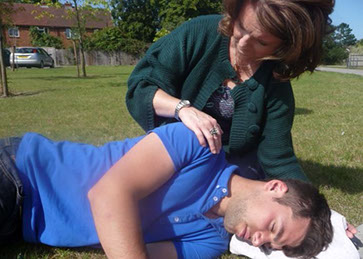Epilepsy is a neurological disease characterized by repeated abnormal electrical discharges from the brain, resulting in fits or convulsions. The disease may affect one part of the body — partial or focal epilepsy, or the whole body may be affected – generalized epilepsy. During a generalized epileptic attack, the patient can lose complete consciousness, resulting in falls or injuries.
Among all age groups, the most clearly established risk factors for epilepsy are central nervous system (CNS) infections, stroke, and head trauma. Specifically in the elderly, cerebrovascular disease is the most common cause of seizure activity, with 10% of patients having epileptic seizures post stroke.

What Is Epilepsy
Epilepsy is a common and chronic medical condition which induces recurrent epileptic fits/seizures. Epilepsy occurs due to change in the function of the brain caused by abnormal electrical discharges in the brain. No two epilepsy cases are the same. There are different types of seizures, epilepsy syndromes and different reasons for epilepsy. Therefore, accurate diagnosis is very crucial for timely and correct treatment of the disease.
Causes
Cerebrovascular disease, primary neurodegenerative disorders, brain tumors and traumatic head injury, are the most commonly identified etiologies in patients with late-onset epilepsy. However, the underlying cause of epilepsy cannot be identified in up to 50% of elderly people (termed ‘cryptogenic’). A multi-regression analysis using the National Veterans Affairs databases demonstrated that patients with cerebrovascular disease, cerebrovascular dementia, brain tumors, head injury and other brain disorders were more likely to develop new-onset epilepsy. In this study, a statin prescription was associated with a lower likelihood of developing epilepsy. However, this warrants further study before recommending statins in epilepsy.
Warning Signs of Epilepsy in Older Adults
Seizure symptoms in older adults aren’t that different from seizure symptoms in any other age group. But while it may seem strange for a 20-year-old to blank out for a few minutes and not remember what just happened, a senior might wave it off as fading memory or just getting older. As a result, this important seizure warning sign often goes unnoticed in older adults.
Other overlooked signs of a seizure in older adults include:
- Experiencing a feeling of foreignness or confusion in places the person knows well
- Hearing voices, hallucinating, or seeing people who aren’t really there (maybe a loved one who has passed away)
- Feeling or acting confused
- Wandering
- Temporary changes in behaviors, like running, undressing, screaming, or acting very afraid
- Odd repetitive actions like chewing, mumbling, fussing over clothes, or even wildly moving arms and legs
- Staring into space
Seeming unaware or out of it for a period of time - Temporary problems with language
- Feeling dizzy
- Mumbling to him- or herself
Some of these seizure symptoms may be confused with signs of mental illness or dementia






